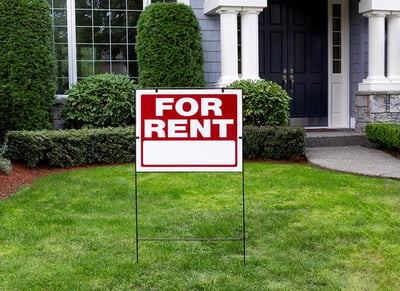Page 34 331 - 340 of 537
How To Calculate Front-End Ratio For Investment Properties

When deciding whether or not a potential client is a reasonable loan risk for a mortgage, lenders look at several factors. One of the factors is known as front-end ratio. In this blog, we’ll explain what front-end ratio is and show how to calculate it.
Are Refinancing Closing Costs Tax Deductible on Rental Property?

Rental property investors may wonder if the closing costs associated with refinancing their rental properties are tax deductible. While it may seem like a simple question, certain closing costs must be disclosed on your tax return. There are some factors that determine whether the closing costs on your refinanced mortgage are tax deductible.
What Are Private Assets?

Private assets are assets held in investments that are not publicly traded. This includes investments with private equity and privately managed equity real estate funds, among others. According to the Securities and Exchange Commission (SEC), an asset is “any tangible or intangible item that has value in an exchange. A bank account, a home, or shares of stock are all examples of assets.”
What Is Relinquished Property?

In a 1031 exchange capital gains taxes are deferred when a taxpayer sells a qualified real estate investment and uses the funds to buy a like-kind property. The property being sold is the relinquished property and the new investment is known as the replacement property.
How To Determine Land Value in Commercial Real Estate

Various factors determine the value of a commercial property, and it's difficult to pinpoint which has the most significant influence. Many people who invest in commercial real estate may not fully understand how to evaluate their potential investments or what factors to consider when doing so.
Is Depreciation an Allowable Expense?

Allowable expenses are essential business costs that are not considered part of the company’s taxable profits. When it comes to depreciation as an allowable expense, it refers to depreciation that an investor or business is allowed to deduct from its tax liabilities. If you own rental property, the IRS views depreciation as a rental expense, which may be tax-deductible.
What Is the Debt Service Coverage Ratio in Real Estate?

Oftentimes, commercial real estate plays require bank financing. Securing financing from a commercial lender is a much different process than obtaining a residential loan, however.
What Happens If I Don't Report Rental Income?

Owning rental property is often considered an attractive method of building wealth. The benefits may include the following:
What Does Escrow Mean in Real Estate?

Understanding how escrow works can be important in real estate investing. Escrow accounts protect you during a real estate transaction and ensure that both parties meet all requirements before money is exchanged.
What Is a Private Fund Manager and How Do I Find One?

If you hold any type of private funds, such as real estate funds or private equity, you may want to consider working with a private fund manager to help manage your assets. A private fund manager can assist you in organizing your assets and developing an investment strategy to pursue some of the highest returns possible on your investments.
Page 34 331 - 340 of 537


